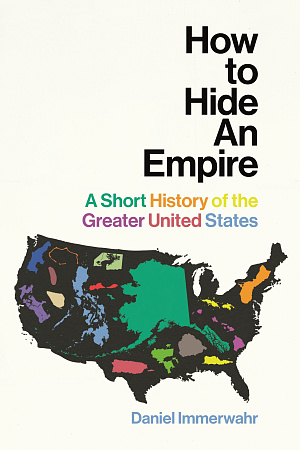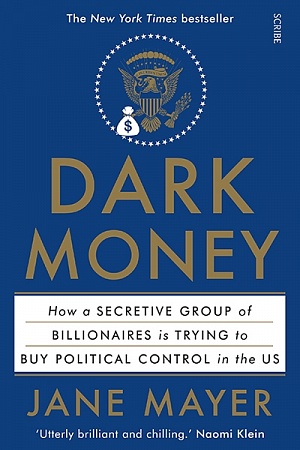American Journeys
Knopf, $49.95 hb, 352 pp, 9781740513166
American Journeys by Don Watson
Travel in America is a journey crowded with literary acquaintances. For centuries visitors have striven to make sense of the United States, drawn by its energy, admiring or disturbed by its civic culture. Charles Dickens visited twice, in 1841 and 1867, capturing his observations in American Notes (1842). His experience of American democracy confirmed him a political radical. Novelist Frances Trollope, on the other hand, travelled to America a liberal and returned a Tory. America has always confronted visitors with the possibilities of freedom but also the consequences of a market society, private wealth alongside public squalor.
One stranger in this strange land set the tone for many who followed. Alexis de Tocqueville arrived from France to study American jails, but wrote more broadly in the first volume of De la démocratie en Amérique, published in 1835 and still the single most influential rumination on the United States. How, wondered, Tocqueville, did the New World sustain a vibrant and practical democracy? Americans, he observed, had developed a distinct character through access to vast new territories, the absence of a strong central state, and values stressing self-reliance and hard work. The resulting tensions kept their society vigorous: a love of individual liberty but attachment to community; a suspicion of government yet celebration of nation; a land of unrestrained capitalism where access to riches ensured a rough equality of outlook.
In American Journeys, his account of travel in the continental United States, historian Don Watson mentions his distinguished predecessors only occasionally. Yet they sit, quietly, in the design. While Tocqueville was explicit about his aims, Watson is cautious about enunciating any wider purpose. Yet both are fascinated by the Americans, and make uncommon effort to see beyond the obvious. They share a preference for close observation, and a startling capacity to draw broader patterns from the small and familiar. Where Tocqueville studied the endless small local newspapers, Watson ponders the content of talk-back radio. Tocqueville reflected on civic culture as unifying forces in the American outlook, while Watson notes the pervasive influence of religion. American Journeys, in part, is a conversation across nearly two hundred years.
Tocqueville journeyed to America on a commission from King Louis-Philippe with fellow jurist Gustave de Beaumont. Don Watson travels alone, interest and opportunity selecting his destinations. He chooses to view America from a train, to follow the tracks, to see images flicker past the carriage window. As Watson observes in one superb passage,
I’m not obsessive about trains, but I do like the way they ease you in and out of towns and cities; the way they deliver you, like Spencer Tracy at the start of Bad Day at Black Rock, into the heart of things. I like being able to get off and stretch my legs on station platforms and breathe a local sample of the earth’s air. I like the sound and sway of them. I like the way they commune with the countryside. I like the fact that the rails on which trains run – or at least the paths they follow – were in the main surveyed a century and a half ago and, much more than modern roads, follow the contours of the land. I like the way trains change speed according to those contours, and how you feel the variation in the rhythmic clatter of the wheels.
Travelling by train also involves the silence of sidings and empty stations, as Watson discovers the poor state of Amtrak, deprived of investment and left as transport of last resort for the poor. Many tracks have been ripped up – the whistle of the Chattanooga Choo Choo is no longer heard, the lines gone and the station now a Holiday Inn. Such missing links force Watson onto highways, listening in the hire car to radio shows offering the Lord’s Prayer and Fox politics.
The result is an America less often seen. It is the needy who travel on trains: people accustomed to being forgotten; people who can be left waiting for hours because the rail tracks are now owned by freight companies which give priority to packages over people. Watson develops an endearing relationship with ‘Julie’, the recorded voice detailing the latest delays across the Amtrak network.
Many on the trains are black, particularly in the south. Watson journeys through Louisiana shortly after Hurricane Katrina breaks the levees and drowns thousands. The carriages are filled with those moving north, those seeking shelter locally, a few heading home. The conversations convey anger at President Bush for neglecting New Orleans after the disaster, and despair about the national response. Through the carriage window, Watson and his fellow passengers see ‘row upon row of gutted houses. Thousand of rusting, abandoned, useless cars. Mountains of rubbish. Mangled hoardings. Uprooted trees. Empty streets.’
Yet the people Watson encounters are rarely fatalistic. They embody an optimism apparently at odds with personal circumstances. Things can and will get better. Americans, conclude Watson, ‘are geared to believe in themselves’. Indeed, no other culture seems ‘so disinclined to believe in the futility of existence. The cross, the high-five and the facelift all express the same conviction that life is winnable.’ Even the beggars are courteous, with a well-developed and crisply delivered personal narrative, as though chance alone put them on a decaying street in Washington DC rather than an LA movie studio.
For many on the trains and in the motels, diners and gas stations, in bars and on the streets, the answer to every question is God. Jesus as explanation and solution, an America in which ‘God is in the storm and the pancake batter’, as Watson observes. A land where football teams pray before the game, rodeo riders drop to their knees in the ring and intone a hymn of thanks, a land which separates church and state but expects politicians to invoke the Lord. A nation of medical innovation in which nearly half the population reject the science of evolution. Watson cites Tocqueville on religion, observing that when people do not believe in government, they incline to believe in God.
Watson works hard to understand this ‘multi-party theocracy’. He visits preachers and churches, previews a Christian museum promoting creationism, watches a stand-up Christian comedian, wanders across the AM dial listening to clerical voices. He passes a hillside on which Noah’s Ark is being reconstructed. Perhaps, muses Watson, America should be understood not as a nation but as a spiritual pilgrimage, a place in which millions of people quest daily to grasp the meaning of their lives through personal encounters with God.
American Journeys is selective. Watson avoids set-piece descriptions of the great cities. There are no vignettes from New York, only glancing mention of Chicago or San Francisco. The focus is on spaces in between: the backdrops glimpsed from trains, the tar and cement landscapes of travel, food served on polystyrene, modest hotels on the edges of town, with ‘cars spearing through the night, the distant sirens, the beige walls and bad art, the lights flickering in the vertical blinds’.
With a map to sketch the journey, and a handful of line drawings by Craig McGill to catch the fleeting, Don Watson has produced an engaging meditation on the United States. He offers no narrative save movement, no purpose but description, yet conveys a powerful sense of time and place. The book is beautifully written, with a form that evokes W.G. Sebald’s wandering across Europe. Watson must move among a people both familiar and deeply foreign, people who choose to live without cynicism or irony. The task is not always easy for an Australian sensibility.
In drawing his book to conclusion, Watson senses remarkable continuities between his America and Tocqueville’s nation of small landowners and ever-expanding frontier. There are important differences, too. Tocqueville demonstrated little interest in the plight of southern slaves, while Watson shows a lively appreciation of black America. And neither can integrate all the strands and contradictions of observation. Watson acknowledges his picture may not be complete. After outlining the brutality of life and its sinister mirror, television, he observes that amid
every variety of weirdness, ignorance and brutality, it easily goes unnoticed that, in the day to day, America is the most civilized of places: how often you see in Americans and the way they deal with each other the graces you should like to see in yourself and your compatriots.
There are passages in this book so good they demand to be read aloud, aphorisms worth turning over and examining closely, the distillation of a life thinking about the glamorous America first seen in childhood, later complicated by a thousand contrary images, but still tugging at the imagination. Don Watson has written a profound and deeply personal work that makes for itself a place in the great tradition of American journeys.















Leave a comment
If you are an ABR subscriber, you will need to sign in to post a comment.
If you have forgotten your sign in details, or if you receive an error message when trying to submit your comment, please email your comment (and the name of the article to which it relates) to ABR Comments. We will review your comment and, subject to approval, we will post it under your name.
Please note that all comments must be approved by ABR and comply with our Terms & Conditions.